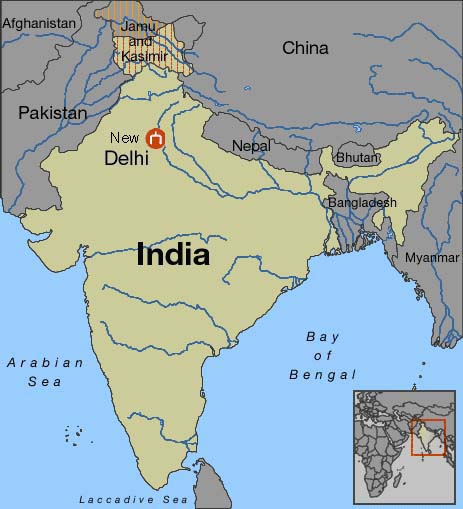Maoist rebels kill seven in India election violence
 New Delhi - Suspected Maoist rebels killed seven people, including a polling official and two political workers, in separate attacks in eastern India taking the death toll in the latest election-related violence to nine, news reports said Friday.
New Delhi - Suspected Maoist rebels killed seven people, including a polling official and two political workers, in separate attacks in eastern India taking the death toll in the latest election-related violence to nine, news reports said Friday.
Maoist militants detonated a landmine that blew up a jeep carrying polling officials in the central Muzaffarpur district of Bihar state Thursday night, killing four policemen and an election official, the NDTV network reported.
The incident came hours after voting in the country's second phase of parliamentary elections ended in Bihar and the officials were returning from their duties, the report said.
Maoist rebels, who claim to be fighting for India's rural poor and have called for an election boycott mounted seven attacks in Bihar's neighbouring Jharkhand state during Thursday's elections.
Later Thursday, Maoist rebels also shot dead two leaders of the Communist Party of India (Marxist) in the state of West Bengal, the PTI news agency reported.
Separatist militants from the banned Dima Haolam Daogah, or Black Widow Group, ambushed an army patrol in the north-eastern Assam state, killing one trooper and injuring two.
Another person was killed and over 30 were injured in politcally-motivated clashes in the southern state of Andhra Pradesh.
Bihar, Jharkhand and Andhra Pradesh were among the 12 Indian states that held the second phase of India's five-stage polls Thursday. Turnout among the 192 million voters was at more than than 55 per cent.
However, this largest election phase, were 140 seats for the 543-seat parliament were up for grabs, was marred by less violence than the first one a week ago when 17 people were killed in Maoist attacks.
A searing heatwave and threats by Maoists kept many people away from polling booths.
Results of the elections after expected on May 16 after the five rounds of polling conclude on May 13.
More than 714 million of India's billion-plus population are eligible to vote in the polls, which are staggered for organizational and logistical reasons in the world's second-most populous country.
Surveys show that neither the ruling United Progressive Alliance or the coalition led by the Hindu nationalist Bharatiya Janata Party will secure enough seats to form a government.
The polls are likely to result in a weak coalition government with the main parties seeking support from smaller, regional parties that have gained power in recent years. (dpa)